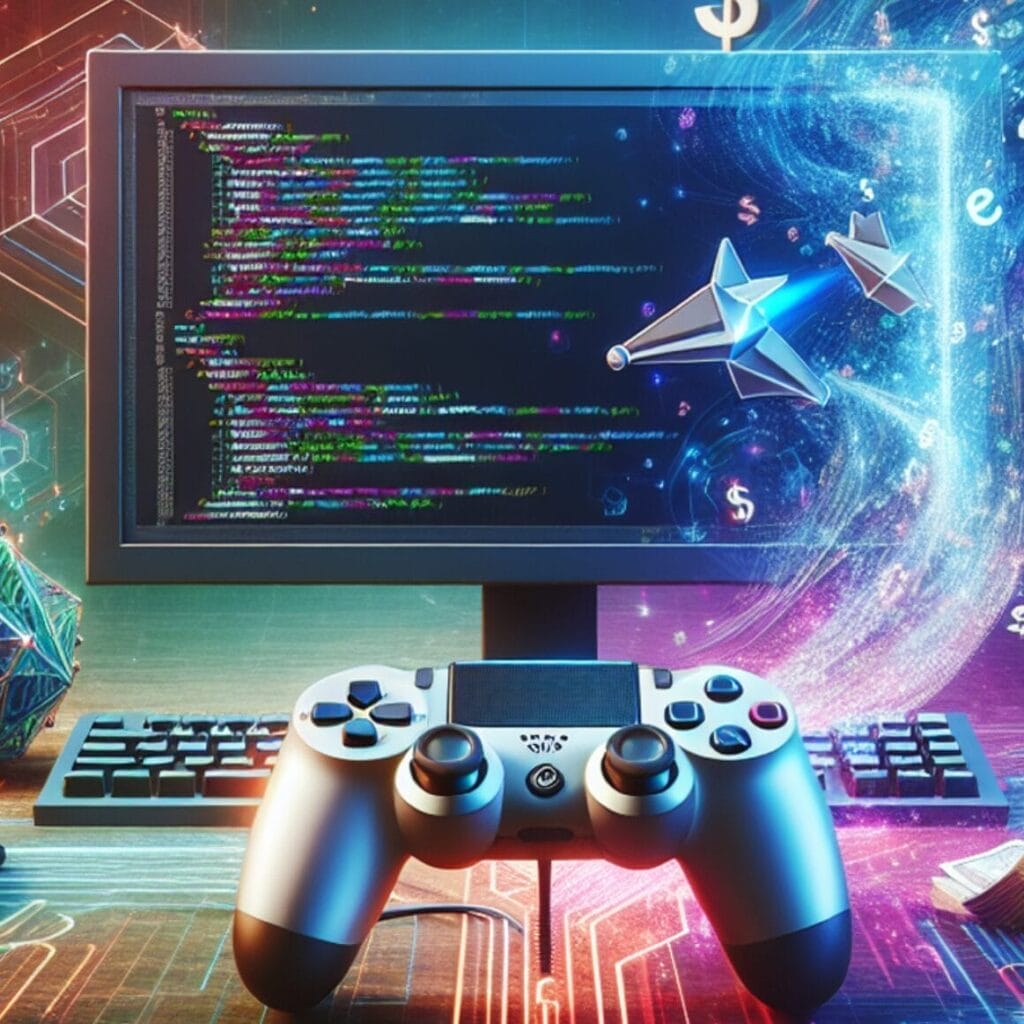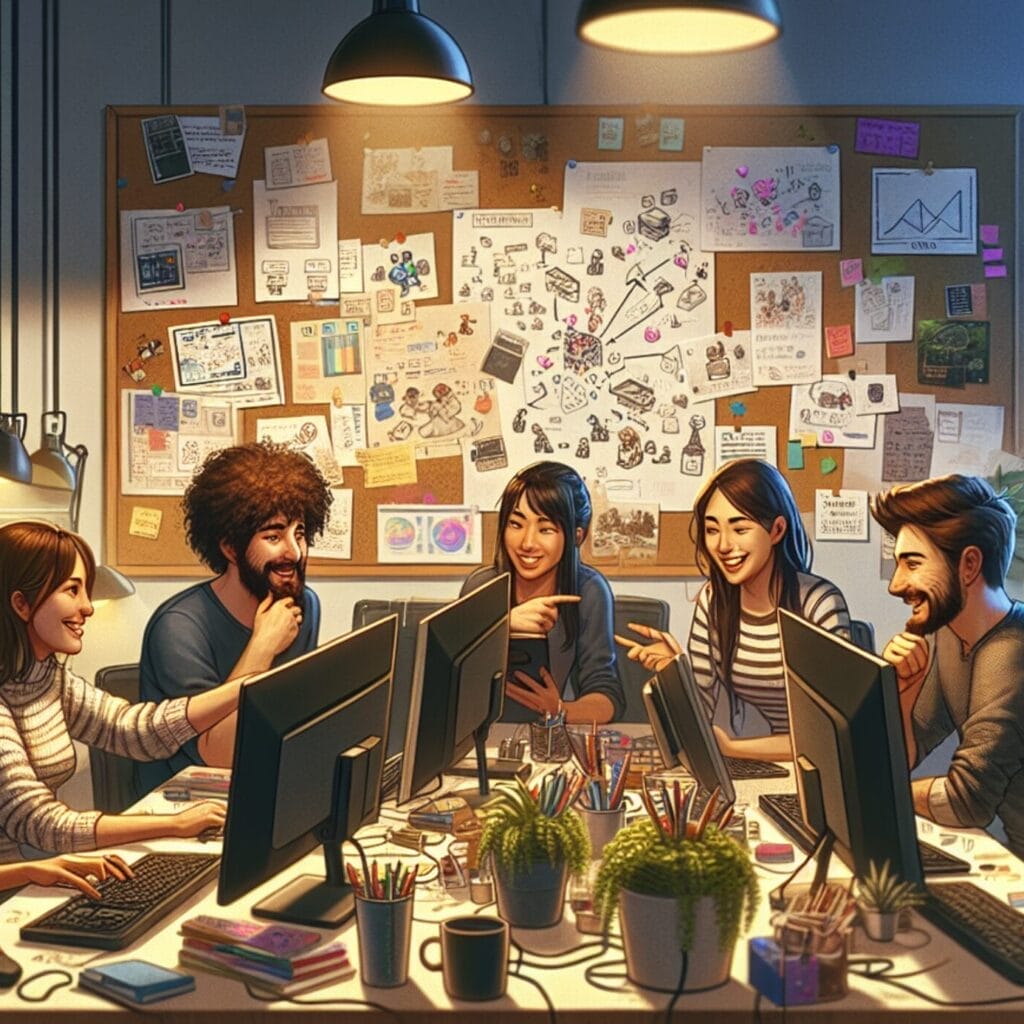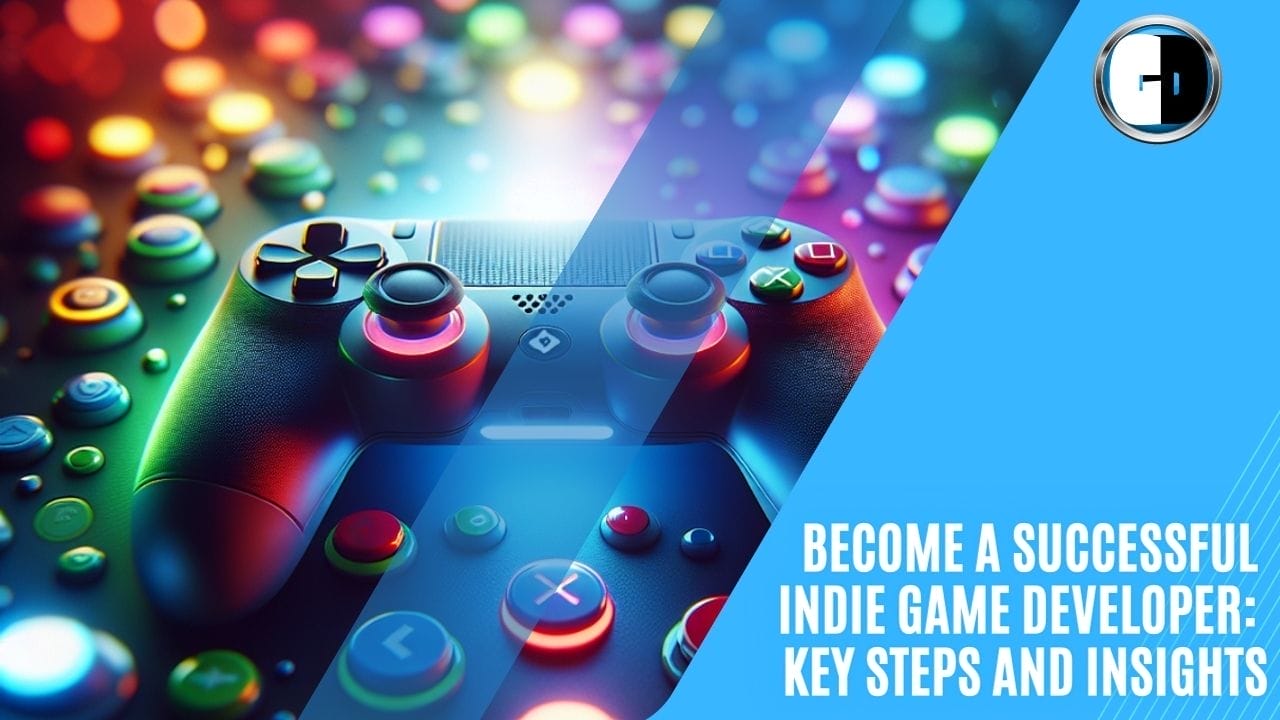Introduction
An indie game developer is an individual or a small team that creates video games without the financial backing of a large publisher. Indie game developers often take on multiple roles, from programming and art design to marketing and distribution.
The world of indie game development offers exciting opportunities. You get creative freedom to bring unique ideas to life, experiment with new game mechanics, and tell stories that resonate on a personal level. The flexibility of working independently allows you to set your own schedule, choose your projects, and create games that align with your vision.
In this article, we will explore the key steps to becoming an indie game developer. Whether you are just starting out or looking to refine your skills, this guide aims to provide valuable insights for aspiring creators in the gaming industry. From acquiring essential skills to building a stellar portfolio, each section is designed to help you navigate the journey of indie game development successfully.
For more information on related topics, check out these resources:
- Upgrade Packaging Wireless Classic Handheld Game Console for Kids: These consoles can serve as a source of inspiration and nostalgia for budding indie game developers.
- Finding Game Publishers for Indie Games: Learn how partnering with the right publisher can significantly impact the success of your indie game.
- Effective Strategies on How to Promote Your Game: Discover various marketing techniques to ensure maximum visibility for your indie game.
- Essential Steps on How to Become a Game Designer: Explore the path to becoming a skilled game designer, an invaluable role in indie game development.
- Crafting an Effective Indie Game Marketing Plan: Learn how to monetize your games effectively and make a sustainable income as an indie game developer.
1. Acquiring the Essential Skills for Indie Game Development

Coding Skills
Having a strong foundation in coding is essential for game programming. The choice of programming language can significantly impact the development process. Here are some recommended languages for aspiring indie game developers:
- C++: Known for its performance and control over system resources, C++ is widely used in game engines like Unreal Engine. It may be complex, but mastering it offers a solid understanding of game mechanics.
- C#: Frequently used with Unity, C# provides a balance between ease of use and powerful features. It’s an excellent choice for both beginners and experienced developers.
- Python: Although not the industry standard for game development, Python’s simplicity makes it ideal for prototyping and learning basic concepts.
- Java: Java’s versatility and portability make it suitable for mobile games, particularly on Android platforms.
Each language has its unique advantages. For instance, this guide on the best programming languages for game development can provide more insights into choosing the right one.
Art and Design
Visual appeal plays a crucial role in attracting players. As an indie developer, honing your art skills can set your games apart. Consider these aspects:
- 2D Art: Tools like Adobe Photoshop, GIMP, and Aseprite are essential for creating sprites and textures. Mastering pixel art or vector graphics can enhance your game’s aesthetic.
- 3D Modeling: Software such as Blender or Autodesk Maya enables you to create detailed 3D models. Understanding modeling, texturing, and rigging is critical for developing visually stunning games.
Sound Design
Sound effects and music bring life to your game world. Effective sound design involves:
- Creating Sound Effects: Tools like Audacity or FL Studio help in crafting sound effects that match your game’s theme.
- Composing Music: Background music sets the tone of your game. Learning music theory or collaborating with composers can elevate your game’s audio experience.
Game Design
Game design encompasses the rules and mechanics that define player interactions. Key elements include:
- Level Design: Creating engaging levels requires understanding player psychology and balancing challenges.
- Mechanics Design: Defining how players interact with the game world involves scripting behaviors and events.
Storytelling
Narrative depth enhances player engagement. Developing storytelling skills involves:
- Writing Skills: Craft compelling dialogues, backstories, and plot twists to immerse players in your game world.
- Integration with Gameplay: Seamlessly weave narratives into gameplay to create an enriching experience.
Learning these skills may require formal education or self-study through online resources. Attending workshops or following tutorials from platforms like Udemy or Coursera can be immensely beneficial.
If you’re looking for a versatile game engine, consider exploring the advantages of using the Godot engine for your projects.
For those interested in building their own game engine, this beginner’s guide offers valuable insights.
Understanding budgeting is also crucial. Check out some [smart finance tips](https://www.game-developers.org/indie-game-budget
2. Gaining Experience and Knowledge through Learning Programs and Tools

Attending Workshops and Online Courses
Learning from professionals can greatly improve your skills as an indie game developer. Workshops and online courses offer structured learning experiences, often led by industry experts who share their practical insights and expertise.
Popular resources include:
- Udemy: Offers a wide range of courses on game development, covering various aspects such as coding, art design, and sound engineering. Courses like “Complete C# Unity Game Developer” are highly recommended.
- Coursera: Provides courses from top universities and companies. You can find specialized programs like “Game Design: Art and Concepts” offered by the California Institute of the Arts.
- edX: Features professional certifications in game development. Courses such as “Introduction to Game Development” by HarvardX are ideal for beginners.
These platforms allow you to learn at your own pace, making them suitable for those balancing multiple commitments.
Educational Tutorials
Educational tutorials are invaluable for grasping different aspects of game development. They offer hands-on experience and detailed walkthroughs that can be both free and paid.
Some reputable tutorial websites include:
- YouTube: Channels like Brackeys and TheCherno provide free, high-quality tutorials on Unity, Unreal Engine, and more.
- GameDev.tv: Offers comprehensive paid courses on Udemy that cover everything from beginner to advanced levels.
- Unity Learn: Official Unity platform that provides tutorials on using the Unity engine effectively.
These resources help you understand complex concepts through step-by-step guidance, making it easier to apply what you’ve learned in your projects.
Game Developers Conference (GDC)
The Game Developers Conference (GDC) is one of the most significant events in the gaming industry. It serves as an excellent platform for learning and networking.
Key benefits of attending GDC:
- Learning: GDC features a wide array of talks, panels, and workshops led by industry veterans. Topics range from technical aspects like programming and graphics to creative elements such as storytelling and game design.
- Networking: Provides opportunities to meet other developers, publishers, and potential collaborators. These connections can be invaluable for career growth.
- Showcasing Work: Many indie developers use GDC to showcase their games to a broader audience. This exposure can lead to valuable feedback or even publishing deals.
Attending GDC helps you stay updated with industry trends while gaining insights directly from those who shape the gaming world.
Exploring these avenues—workshops, online courses, educational tutorials, and conferences—can significantly accelerate your journey in becoming a successful indie game developer.
For additional resources on game development and design, you may also find this Quora thread helpful.
3. Building a Stellar Portfolio and Showcasing Your Work

Developing a Portfolio of Your Games
Creating a strong portfolio is essential for indie game developers. It not only shows off your skills, but also demonstrates your creativity and vision. When potential collaborators, employers, or investors assess your abilities, they look at the quality and variety of your past projects.
To build an impressive portfolio:
- Include Diverse Projects: Feature a mix of game genres and styles to highlight your versatility. For instance, if you’ve developed a 2D platformer using Unity, include that alongside a 3D action game made with Unreal Engine.
- Showcase Completed Projects: Ensure that the games in your portfolio are polished and complete. Even if some are small-scale projects, finishing them shows dedication and capability.
- Provide Context: Each project should come with a brief description explaining your role, the tools used, and any challenges faced during development. This contextual information gives viewers insight into your problem-solving skills and technical proficiency.
- Highlight Unique Features: If any of your games have unique mechanics or innovative features, make sure to spotlight these aspects. This can set you apart from other developers.
Strategies for Building an Impressive Online Presence
In today’s digital age, having a strong online presence is indispensable for an indie game developer. Your online presence acts as both a marketing tool and a portfolio showcase.
Social Media
Utilize various social media platforms to gain visibility:
- Twitter: Engage with the gaming community by sharing updates about your projects, behind-the-scenes content, and participating in relevant hashtags like #indiedev or #gamedev. Here are some tips on effectively marketing your game on Twitter.
- YouTube: Create video content such as development logs (devlogs), trailers, or tutorials related to your games.
- Instagram: Post visually appealing images or short clips of your game development process.
Website Creation
Having a dedicated website serves as a central hub for all information related to you and your games:
- Portfolio Section: Create a well-organized section where visitors can view detailed descriptions of each project along with playable demos or download links.
- Blog: Maintain a blog where you share insights into your development process, challenges faced, and solutions found.
- Contact Information: Make it easy for potential collaborators or fans to reach out by including clear contact information.
Networking Platforms
Engage with professional networks:
- LinkedIn: Connect with other professionals in the gaming industry and join groups related to game development. This platform also provides valuable business development tips that can accelerate your growth as an indie developer.
- Discord Communities: Participate in Discord servers dedicated to indie game development where you can share progress updates and seek feedback.
Expanding Opportunities
While focusing on showcasing your game development skills, it’s also beneficial to explore collaborative avenues. For example, if you’re an illustrator or concept artist looking for your first commission in
4. Navigating the Indie Game Development Community

The indie game development community is a vibrant and supportive ecosystem where creators come together to share knowledge, offer feedback, and inspire each other. Engaging with this community can be incredibly beneficial for your growth as an indie developer.
Active Engagement Strategies
1. Join Online Forums and Social Media Groups
Platforms like Reddit, Discord, and Facebook have dedicated groups for indie developers. These spaces provide a venue for discussing game development challenges, sharing updates, and seeking advice.
2. Participate in Game Jams
Events like Ludum Dare or Global Game Jam are excellent opportunities to practice your skills under time constraints while engaging with other developers. These events foster creativity and collaboration.
3. Attend Meetups and Conferences
Local meetups and larger conferences such as the Game Developers Conference (GDC) offer opportunities to network with fellow developers face-to-face.
4. Contribute to Open Source Projects
Many indie games are developed using open-source tools. Contributing to these projects can help you build connections within the community while enhancing your technical skills.
Advantages of Seeking Collaboration Opportunities
Collaboration can be a game-changer when it comes to indie game development. Working alongside others brings numerous benefits that can amplify your project’s success.
Collaborative Benefits
- Skill Diversification: Collaborating allows you to leverage the unique skills of different team members. For example, one person might excel in coding while another shines in art or sound design.
- Shared Resources: Pooling resources such as software licenses, hardware, or even marketing budgets can make high-quality production more feasible.
- Enhanced Creativity: Brainstorming with others often leads to innovative ideas that you might not have conceived independently.
- Mutual Learning: Team members can learn from each other’s expertise, broadening their own skill sets in the process.
Finding Collaboration Opportunities
- Networking Events: Conferences like GDC are fertile grounds for meeting potential collaborators. Engage actively in sessions and social gatherings to find like-minded individuals.
- Online Communities: Platforms such as IndieDB and TIGSource forums are excellent places to post about your project needs or browse for collaboration offers.
- Social Media Outreach: Utilize platforms like Twitter or LinkedIn to reach out directly to developers whose work you admire. A concise, respectful message explaining your project and what kind of help you’re seeking can go a long way.
Exploring Niche Game Development Areas
For those looking to delve deeper into specific aspects of game development, there are specialized resources available:
- Game Monster Design: A comprehensive guide on designing compelling game monsters that add depth and excitement to your projects.
- Creating Games Without Coding: An invaluable resource for mastering game development without extensive coding knowledge.
Conclusion Become a Successful Indie Game Developer in 2024
Becoming an indie game developer is both challenging and rewarding. You have the freedom to express your creativity and explore exciting opportunities in this field like no other. Passion is what drives the industry, and with your dedication, you can turn ideas into immersive experiences for players all over the world.
While the journey may have its difficulties, every obstacle is a chance to learn and grow. Here are some key takeaways to remember:
- Persistence is key.
- Every failure brings you one step closer to success.
- The indie game development community is there to support you.
Stay true to your vision, embrace your uniqueness, and keep pushing the boundaries of your creativity. Remember that you’re not alone on this path – there are others who share your passion and are willing to help.
“The only limit to our realization of tomorrow will be our doubts of today.” – Franklin D. Roosevelt
For more insights on how to navigate this industry successfully, consider exploring some valuable resources:
- RG350 Retro Game Console: A Powerful Tool for Indie Game Development: Discover how this console can enhance your development process.
- How to Self-Publish an Indie Game from Start to Finish: Gain valuable knowledge on self-publishing and take control of your game’s destiny.
- Tips to Get Started in Indie Game Development: Explore valuable tips and advice that can help kickstart your indie game development journey.
- How to Be a Successful Indie RPG Developer: If RPGs are your niche, this resource provides insights on how to thrive in this specific genre.
Your passion can lead to great achievements in the world of indie game development. Embrace it, learn from every experience, and let your creativity shine.
FAQs (Frequently Asked Questions)
What is an indie game developer?
An indie game developer is an individual or a small group of developers who create and publish video games independently, without the financial or technical support of a large game publisher. This allows for greater creative freedom and the ability to explore unique and innovative game concepts.
What are the essential skills required for indie game development?
Essential skills for indie game development include strong coding abilities in languages like C++, C#, Python, and Java for programming purposes. Additionally, skills in art and design, sound design, game design, and storytelling are crucial for creating immersive game experiences.
How can I gain experience and knowledge in indie game development?
You can gain experience and knowledge through learning programs and tools such as workshops or online courses conducted by industry experts. There are also valuable resources available through educational tutorials, both free and paid, as well as events like the Game Developers Conference (GDC) which provide opportunities for learning and networking.
Why is building a stellar portfolio important for indie game developers?
Building a portfolio of your games is important as it serves as a demonstration of your skills and creativity to potential collaborators or employers. Additionally, having an impressive online presence through social media and website creation can help showcase your work to a wider audience.
How can I navigate the indie game development community?
The indie game development community is known for its supportive nature, and it’s important to actively engage with fellow developers through forums, social media groups, or local meetups. Seeking collaboration opportunities with others in the industry can also provide valuable insights and help expand your network.
What advice do you have for aspiring indie game developers?
Our final words of encouragement for aspiring indie game developers are to pursue their passion for game development and embrace the challenges that come with it. With dedication, creativity, and perseverance, success in the indie gaming industry is within reach.
A game developer that wants to share its knowledge and experience with other game developers-





